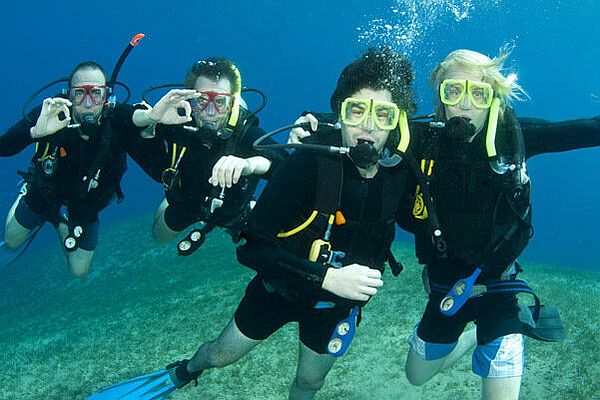Support scientist-divers working in deep oceans by adapting rebreather diving technology pioneered by the commercial offshore diving industry. Most of the current technologies are cost prohibitive or unsuited to the needs of the scientific community. A unique opportunity exists to adapt these technologies to marine science by combining skills from several disciplines, excess commercial capacity, and unique management teams. We have assembled scientists, deep (saturation) diving engineers and supervisors, licensed captains, and underwater vehicle technician/operators with the expertise to reengineer these technologies to meet scientific objectives.
The depth range between 50 and 300 Meters (165-1,000’) is often referred to as the Twilight Zone and is relatively under explored, primarily because it is beyond safe diving limits for Scuba divers. Deep diving requires extensive training, special breathing mixtures, advanced diving equipment, and very slow ascent rates called decompression.
Some pioneering work is currently performed at great risk by a very limited number scientists using mixed
gas rebreathers in shallower range of the Twilight Zone. They dive from small boats of opportunity with virtually no surface support. Their rate of new discoveries is many times that of scientists working above the Twilight Zone. Working at mid-Twilight Zone depths typically requires decompressing 6-8 hours for only 20-60 minutes of work at maximum depth.
The first project is to train crews and adapt a long range 15m/50’ vessel outfitted to support scientific rebreather divers with these systems to dramatically increase safety and efficiency.
- Work and emergency support stage
- Electronic wireless tracking systems
- Observation-class ROV (Remote Controlled Vehicle)
- Dynamic Positioning (DP) station keeping
- Handling systems for work stage and ROV
- Breathing gas mixing systems
This vessel will be capable of support scientist diving operations in tropical oceans for more than seven days without going ashore for supplies.


